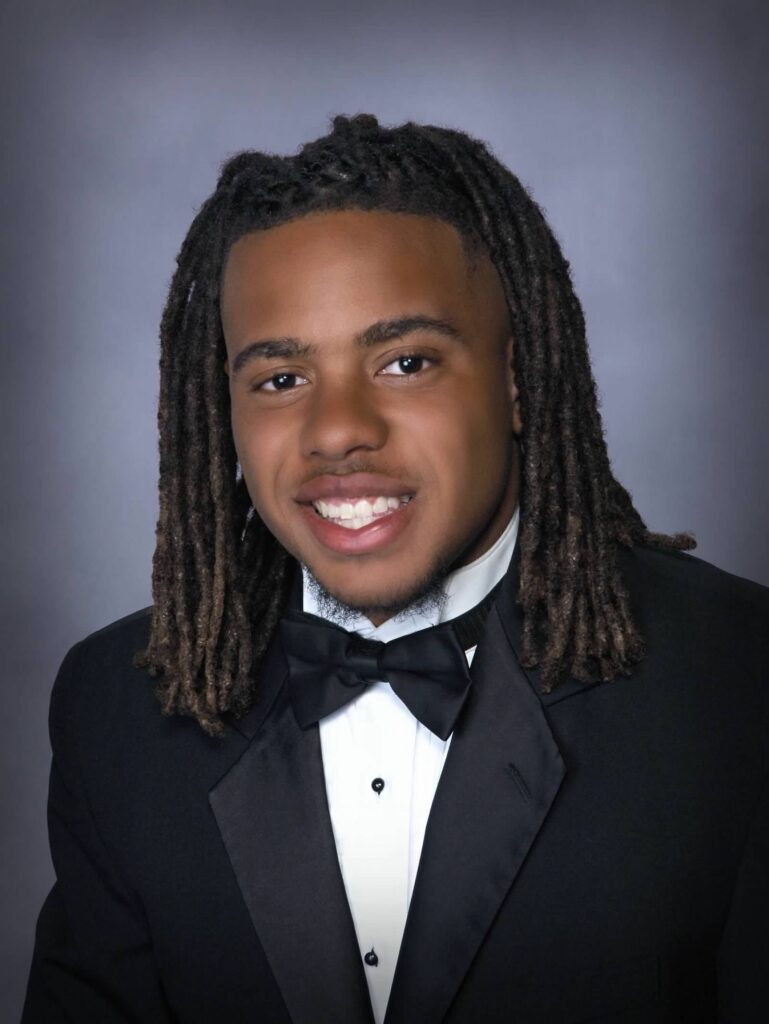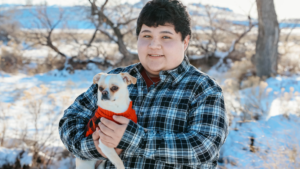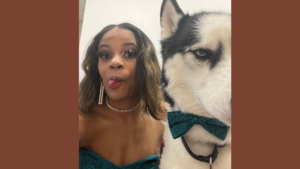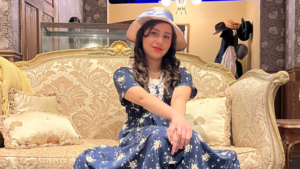This guest post is by Bryce Smith, a young man on the autism spectrum who was accepted into Prairie View A&M University. James is applying for the Spring 2025 Making a Difference Autism Scholarship via the nonprofit KFM Making a Difference started by me, Kerry Magro. I was nonverbal till 2.5 and diagnosed with autism at 4 and you can read more about my organization here.
Autistics on Autism the Next Chapter: Stories You Need to Hear About What Helped Them While Growing Up and Pursuing Their Dreams will be released on Amazon on 3/25/25 and looks at the lives over 75 Autistic adults. 100% of the proceeds from this book will go back to supporting our nonprofits many initiatives, like this scholarship program. Check out the book here.
I’m not quite sure why my parents are having me evaluated. These are the thoughts running through my head as we sit in the waiting room, preparing to meet with the doctor. Of course, they’ve expressed some concerns over the past few months, but I haven’t understood why those things seemed to bother them so much. I’m a great student, a respectful and responsible son, and a role model to my younger sisters. I get good grades, stay out of trouble, and follow the rules. I always assumed I gave them no reason to worry so why were we here?
Now, we’re sitting down to hear the results of what felt like an endless series of evaluations, interviews, and testing. The doctor walks in, gently explains the findings, and delivers the result: I have autism.
Wow.
It’s a simple word, but in that moment, it felt massive. Heavy. Confusing. What does this mean for me? For my future? I didn’t feel any different than I did yesterday so why did this label suddenly matter so much? Part of me thought, “Okay, cool… and?” while another part of me quietly panicked, trying to process what this “diagnosis” said about me. Was I still the same person? Should I be reacting more strongly? Was this something to be upset about?
At first, I didn’t really get it. I went home that day feeling like I’d been handed information I didn’t ask for and wasn’t sure I needed. Still, curiosity took over, and I began researching. I wanted to know what autism was not just from a medical or scientific perspective, but from the perspective of people who actually lived with it. I read articles, watched videos, and dove into forums. Some things I read clicked right away—my limited food preferences, my intense focus on certain subjects, my need for structure, and yes, my love for buttoning polo shirts all the way to the top. Other traits didn’t really apply to me, which made me question if I really “fit the mold.”
But the more I learned, the more I saw myself reflected in others’ stories. It became clearer that autism isn’t a strict checklist; it’s a spectrum, and no two people experience it in the same way. That realization was both comforting and empowering. It helped me start to make sense of certain things in my life that had always felt a little “off,” like why loud environments drained me so quickly, or why I sometimes struggled to pick up on certain social cues.
For a few weeks after my diagnosis, time felt like it stood still. I didn’t change, but my awareness did. I started noticing how I moved through life differently than the people around me. It wasn’t necessarily a bad thing just… different. I began to understand that while my brain may process the world uniquely, that doesn’t mean it’s broken or wrong. It’s just wired differently.
Being diagnosed with autism at sixteen forced me to reflect deeply on my identity and how I relate to others. Before this, I never really questioned how I operated I just did what felt natural. But now, I was beginning to see that my experiences weren’t universal. There were things I struggled with that others didn’t, and vice versa. But instead of feeling isolated, I started to feel a strange sense of connection to others on the spectrum, to my family as they tried to understand me better, and even to myself.
Through this process of self-discovery, I gained more than just knowledge I gained perspective. I became more patient with myself when I felt overwhelmed or misunderstood. I stopped trying to force myself into social molds that didn’t fit and started leaning into my strengths. I began appreciating my ability to focus deeply, my loyalty to routines, and my creative ways of solving problems. I also learned to be more compassionate toward others. Everyone, I realized, is carrying something seen or unseen.
Being diagnosed with autism didn’t change who I am it gave me the tools to understand who I’ve always been. It allowed me to put a name to things I once thought were just quirks or flaws. It also opened doors to communities and conversations I never knew existed. Suddenly, I wasn’t just trying to “fit in” I was learning how to stand out and still feel accepted.
In conclusion, receiving an autism diagnosis at sixteen has been a pivotal moment in my life. What started as confusion and doubt has transformed into growth, understanding, and empowerment. It has helped me embrace my identity, advocate for myself, and approach the world with more empathy. I now see my differences not as limitations, but as unique parts of what make me, me. And while I still have much to learn and discover, I face the future with confidence, knowing that I am not alone and that I am exactly who I’m meant to be.
Kerry Magro, a professional speaker and best-selling author who is also on the autism spectrum started the nonprofit KFM Making a Difference in 2011 to help students with autism receive scholarship aid to pursue a post-secondary education. Help us continue to help students with autism go to college by making a tax-deductible donation to our nonprofit here.
Also, consider having Kerry, one of the only professionally accredited speakers on the spectrum in the country, speak at your next event by sending him an inquiry here. If you have a referral for someone who many want him to speak please reach out as well! Kerry speaks with schools, businesses, government agencies, colleges, nonprofit organizations, parent groups and other special events on topics ranging from employment, how to succeed in college with a learning disability, internal communication, living with autism, bullying prevention, social media best practices, innovation, presentation best practices and much more!














